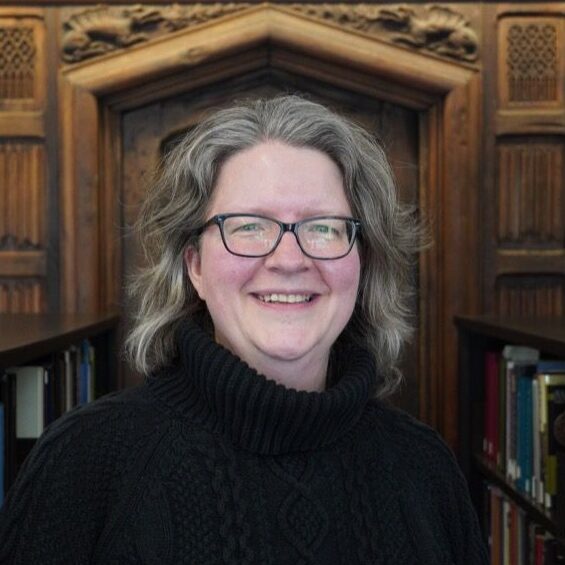M-95. The Medieval Manuscript in the Twenty-First Century
Dot Porter
“A thrilling introduction to both codicology and digital humanities for someone with any humanistic background.” —2017 student
This course is designed to introduce students of both the digital humanities and manuscript studies to the concepts and realities of working with medieval manuscripts in the twenty-first century. Through the course, students and faculty will examine materials from the collections of the Kislak Center for Special Collections, Rare Books and Manuscripts, as well as digitized versions of those materials and others.
Students in the course will consider four issues relating to using medieval manuscripts in a digital world. The first issue is theoretical, considering the relationship between medieval manuscripts and their digital counterparts, and questioning the notion of digital surrogacy. What does “digital surrogacy” mean and how might it affect our consideration of the physical objects represented through the surrogate? The second issue is the practical one of imbuing best practices when creating digital assets out of medieval manuscripts. If we are to digitize manuscripts, how can we ensure that those digital versions are the best they can be? And again: what does that mean? The third issue concerns the present landscape for digital medieval manuscripts (and medieval studies more generally), including current publication technologies and the place of Open Data. The fourth issue is that of building resources with and for digitized medieval manuscripts. What tools are available to enable us to create something new? As a final project, students and faculty in the course will work together to build something new—either “hacking” an application to display and sort medieval manuscript data, or creating an exhibition using an existing platform (such as Omeka). The specific direction of the final project will depend upon the skill sets available in the room.
Students should plan to bring a laptop with them to class.
In their personal statement, applicants should indicate their background, special interests, and expectations from the course. They should clearly state their experience working with manuscripts or manuscript-related courses they have taken, as well as any experience using digital technologies. Although it is expected that some students will have some technological experience, it is not a requirement for the course.
Course History
Faculty

Dot Porter
As Curator of Digital Research Services at the Schoenberg Institute for Manuscript Studies, Dot Porter works with a wide-ranging digital humanities research and development team within the context of a special collections department. Her projects focus on the digitization and visualization of medieval manuscripts. She holds an M.A. in Medieval Studies and Library Science, and started her career working on image-based digital editions of medieval manuscripts. She has worked on a variety of digital humanities projects over a decade-long career, focusing on materials as diverse as ancient texts and Russian religious folklore, providing both technical support and scholarly expertise. From 2010 until March 2013, she was the Associate Director for Digital Library Content and Services at the Indiana University Bloomington Libraries, where she led the planning and implementation of new services to support librarians and faculty in the creation of digital projects. She has also worked for the Digital Humanities Observatory at the Royal Irish Academy and for the Collaboratory for Research in Computing for Humanities at the University of Kentucky.
